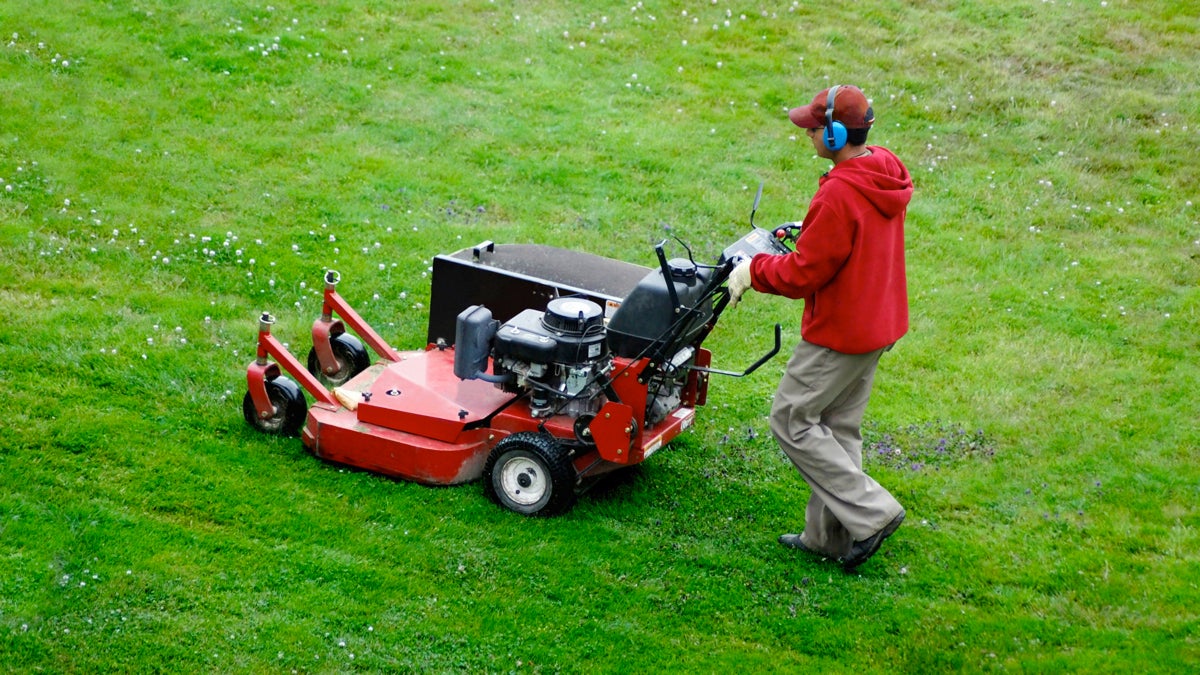Sued for underpaying guest workers, Pa. lawncare company settles for $700,000

About one in five members of the National Association of Landscape Professions employs workers through the H-2B visa program. (igorot/Bigstock)
This week, landscaping company Earth Care, Inc., of Honey Brook, Pennsylvania, settled a case with nearly 100 foreign guest workers, who claimed the company underpaid them for work in 2013 and 2014.
The federal government sets the hourly pay for guest workers — those who come to the U.S. with special seasonal work visas, called H-2B visas. Each year, 66,000 of these foreign workers staff fish canneries, landscaping companies, golf courses and other businesses that apply for a contract with the Department of Labor.
Companies taking on the workers must show that they cannot find enough domestic laborers to fill their positions, and that hiring foreign workers won’t drive down wages for their other employees.
“If you want to exploit these workers, it’s really easy,” said Stephanie Dorenbosch, counsel with Friends of Farmworkers, who represented workers in Ortega Hernandez v. Earth Care, Inc. The landscaping company has clients in all four suburban Philadelphia counties.
“The visas tie the employee to an employer, they’re only authorized to work for that one employer, and a lot of them pay out-of-pocket expenses in order to get here, even though the employers are supposed to reimburse them for those costs,” she said.
Companies that employ guest workers — which include H-2A agricultural workers — have drawn lawsuits across the country, and advocacy group the Southern Poverty Law Center has gone so far as to equate them with slavery. Meanwhile, employers continue to lobby the federal government to issue more of the visas, citing poor domestic labor prospects for jobs in growing industries, such as landscaping.
In the case against Earth Care, Dorenbosch and the workers alleged the employer paid less than the federal prevailing wage to 94 of its H-2B workers, as well as failing to pay for all hours spent on the job and for expenses related to their travel to and from Mexico. In some cases, the worker’s hourly wages were more than $4 less per hour than required by the Department of Labor.
Landscaping companies in the Pennsylvania are big users of this type of visa, according to Dorenbosch.
“We really only hear about the bad employers,” she said. “So I don’t really have a sense of what percentage of landscaping employers are taking advantage of their workers.”
Friends of Farmworkers currently has two other suits filed against other lawn care companies in the Philadelphia region.
In the settlement with Earth Care, the employer agreed to pay for the difference in wages between what workers received and what they were required by law to be paid. In 2014, the prevailing wage set for these workers was $14.04 per hour.
Some Earth Care workers will receive as much or more than $10,000 to make up for being shortchanged in 2013 and 2014 — a significant payout for workers who can earn at most $20,200 working 40 hours a week during the March to October season. The total amount of the settlement is estimated at around $700,000 but is subject to change as more workers claim their chunk of the class-action lawsuit.
Counsel for Earth Care did not respond to email and phone call requests for comment.
WHYY is your source for fact-based, in-depth journalism and information. As a nonprofit organization, we rely on financial support from readers like you. Please give today.

